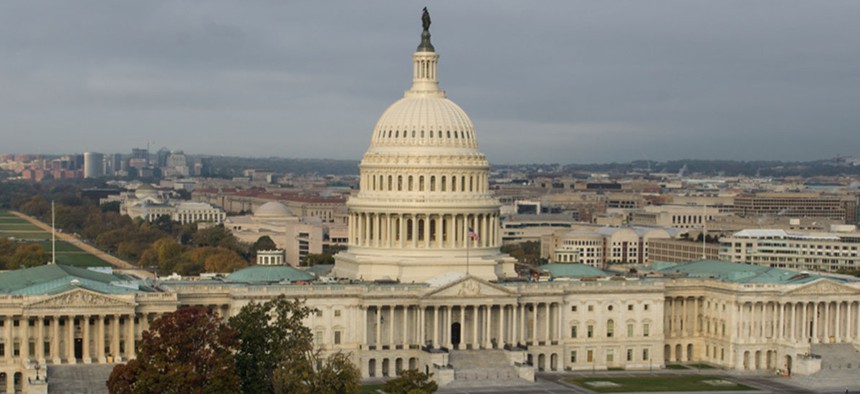
Architect of the Capitol
Congress Approves Shutdown-Averting Stopgap Spending Bill
Trump is expected to sign the CR to push the shutdown deadline to May 5.
Both the House and Senate on Friday easily passed a one-week stopgap spending bill, clearing the way to avoid a government shutdown.
The Senate approved the measure shortly after the House as the midnight deadline approached. The continuing resolution will now head to President Trump, who is expected to sign the bill in time to avert the shutdown. The current CR is set to expire Saturday.
Congressional negotiators are still finalizing an omnibus measure to fund agencies through September, or the end of fiscal 2017. The CR would maintain current spending levels and assumes a $1.07 trillion total expenditure for the fiscal year. Sen. Thad Cochran, R-Miss., who chairs the Senate Appropriations Committee, said this week congressional negotiators have made “substantial progress” on an omnibus bill to fund agencies through the Sept. 30 end of fiscal 2017, and encouraged his colleagues to approve the stopgap measure.
“Let’s pass this new continuing resolution, and make good use of this extra time to enact overdue legislation to provide for national defense and meet our country’s needs,” Cochran said.
Democrats continued to criticize their Republican counterparts on Friday, however, for including “poison pill” riders in the proposed omnibus language. Sen. Patrick Leahy, D-Vt., the vice-chairman of the Senate Appropriations Committee, said on the Senate floor Friday Republicans should vote separately on priorities such as repealing elements of Dodd-Frank Wall Street reforms rather than placing them in must-pass spending legislation.
Odds of a shutdown -- for which the Trump administration has already begun to prepare -- dipped dramatically this week as the White House backed off its demand that any spending measure include funding for the president’s proposed U.S.-Mexico border wall and vowed to continue funding subsidies for insurance companies to provide coverage to low-income Americans. Congressional leaders had hoped to avoid another CR, a desire Senate Majority Leader Mitch McConnell, R-Ky., reiterated this week. But ultimately lawmakers said they did not have enough time to finalize their deal.
NEXT STORY: Leadership and Shifting Baseline Syndrome







